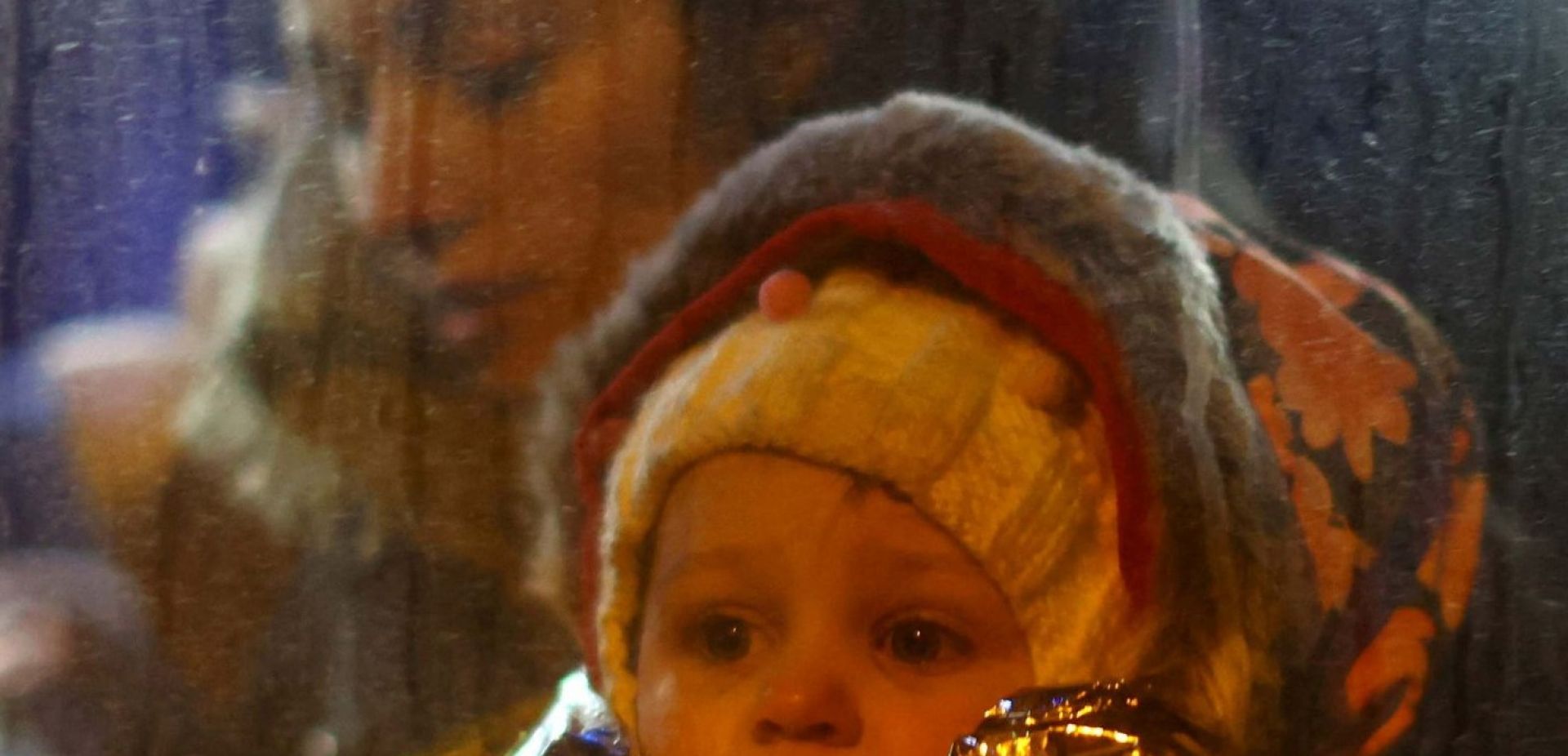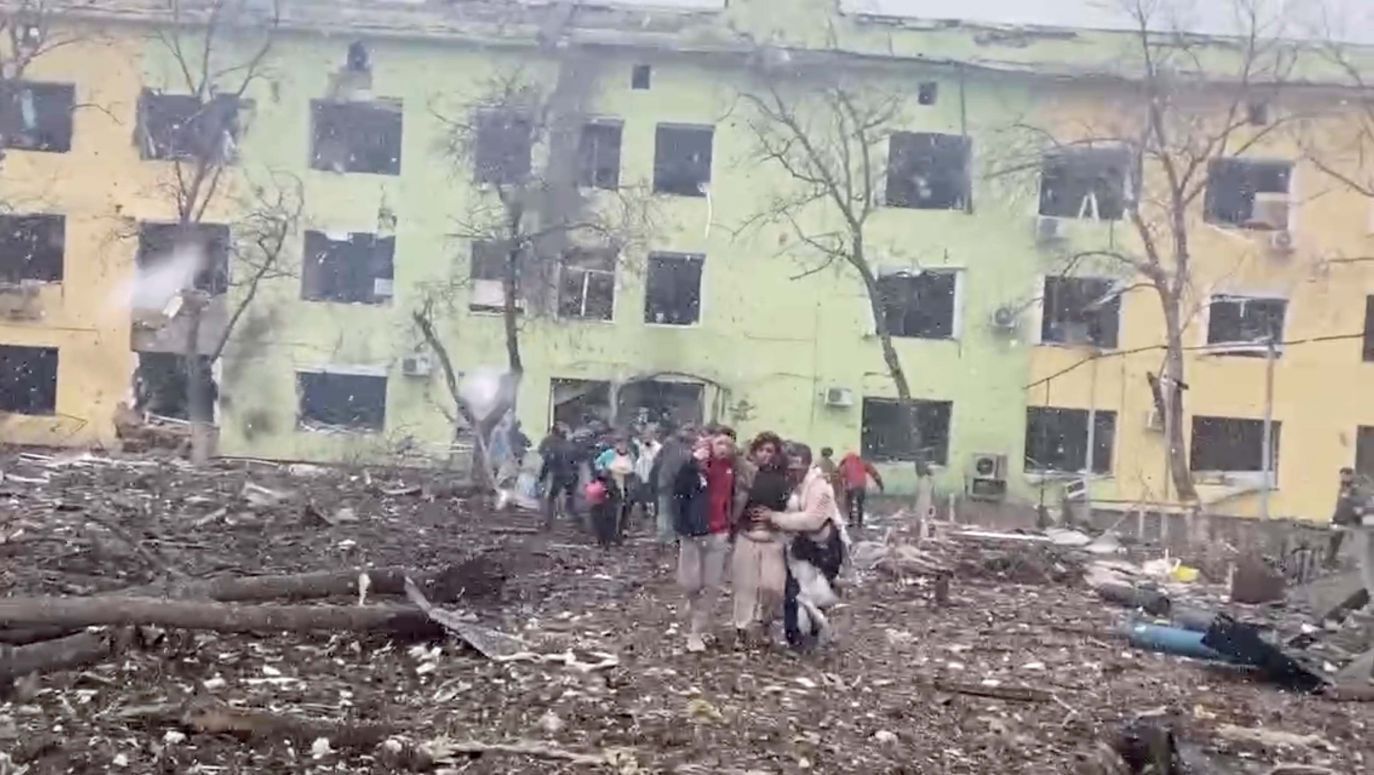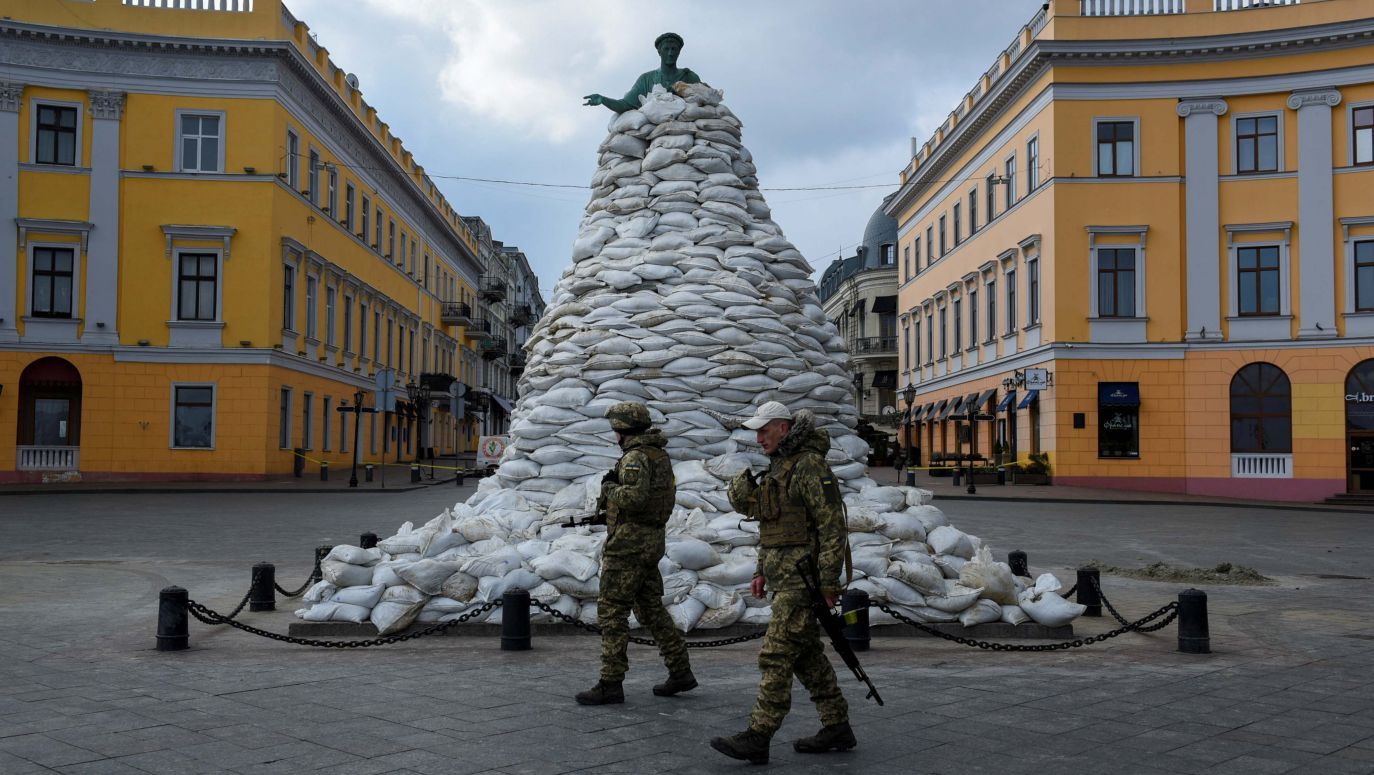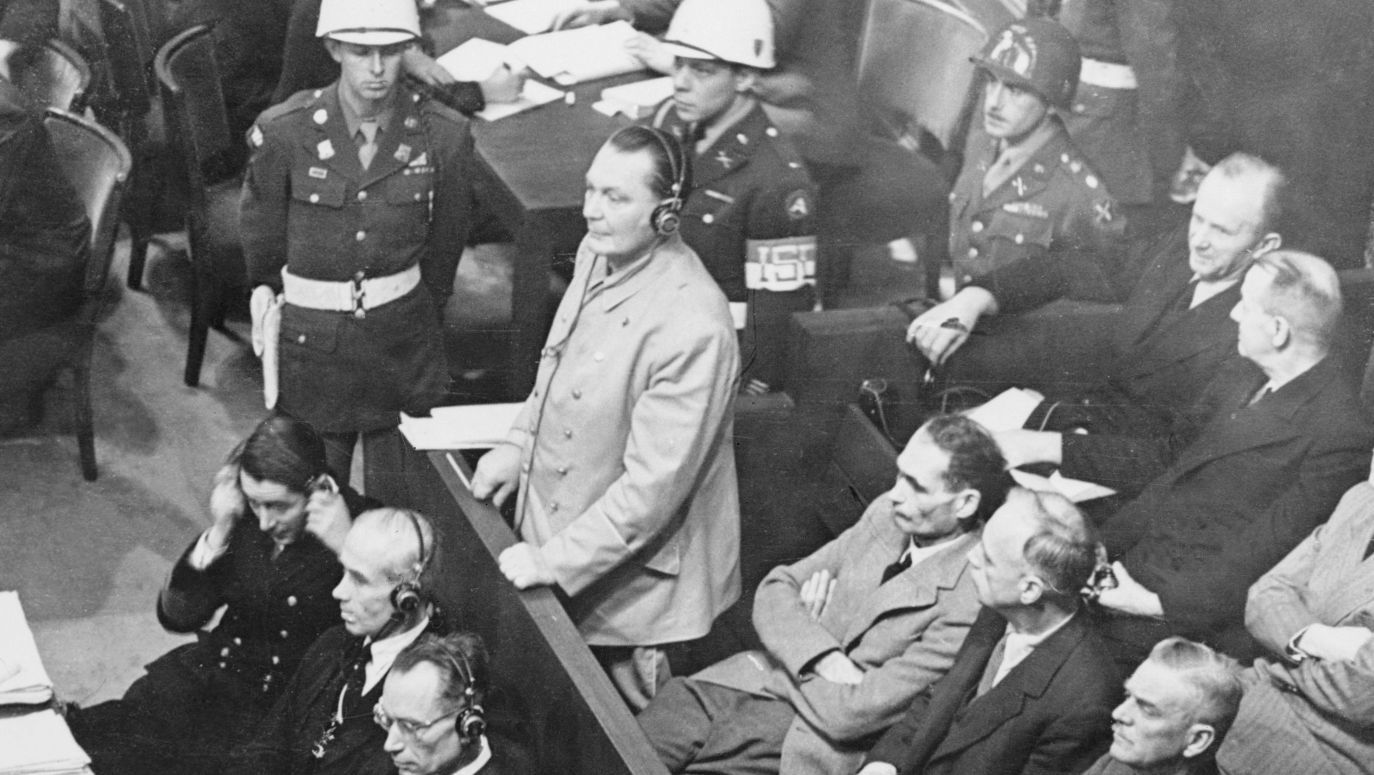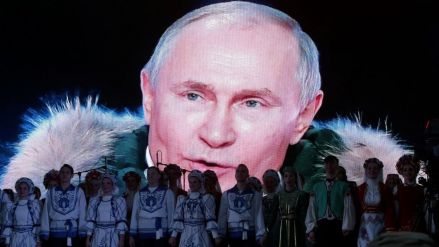„Nuremberg trial for Putin”. What can the world do in face of war crimes?
16.03.2022
Each day brings information about further actions of the Russian troops, which are taken straight from the chronicles of barbarism: a Russian prisoner of war testified that during the storming of Kharkiv, soldiers were allowed to kill civilians, Ukrainian customs agents detained Russians at the border with Moldova carrying antiques and foreign currencies.
“They brought them [the Plataeans] in again one by one and asked each of them the same question, that is to say, whether they had done the Lacedaemonians and allies any service in the war; and upon their saying that they had not, took them out and slew them, all without exception”.
Thucydides (in the classic translation by K. Kumaniecki) was the first historian to show that during war the perspective of using violence which is not justified by tactical reasons: killing POWs, women and children is at your fingertips. It’s convenient to call such deeds by the name of “war barbarity” – but during the Peloponnesian War (431-404 BC) they were perpetrated not by barbarians but Hellenes, peers or even Socrates’s brothers in arms.
Night’s end
In “The History of the Peloponnesian War” we read about slaying prisoners and hostages, about tortures, mass rape, selling women and children into slavery, plundering treasuries, burning temples and extortion. Among deeds nowadays being classified as war crimes the Athenian historian didn’t mention perhaps only shelling of hospitals (since there was no artillery or hospitals in his time, except those few located around the temples of Asclepius) and forcing children to serve in opponent armies – people in Hellas simply grew up faster.
“Being acquainted with night’s end / Sit down to read Thucydides” – wrote Czesław Miłosz in his “Moral Treaty” two years after the end of WW II. We sit down to read him today, seeing how little separates the subordinates to minster Sergey Shoygu from the Lacedaemonians. We look at the bombardment of a maternity hospital in Mariupol, wounded mothers taken out of the rubble on doors torn out by explosion. But also the mining of humanitarian corridors, shelling of residential districts of Kharkiv and Kiev.
Each day brings information about further actions of the Russian troops, which are taken straight from the chronicles of barbarism: a Russian prisoner of war testified that during the storming of Kharkiv, soldiers were allowed to kill civilians, Ukrainian customs agents detained Russians at the border with Moldova carrying antiques and foreign currencies. The Internet is full of information on zachistki (round-ups) carried out by the Russian army in Ukraine and having been the most significant Russian contribution to the military language since the time of Katyusha.
In Anglo-Saxon handbooks of war they are sometimes rendered as “building (room-to-room) clearing operations but most people know the term zachistki. Mastered by the Russians during the second Chechen war, stretching from Alchan-Kala to Tsotsi-Yurt they consist in searching through whole cities, home after home, and deporting all men over 16. Deporting – for good and to the unknown. Civilians of Alchan-Kala have never been found.
What can the world do in face of war crimes? In the future, perhaps - to judge. Today - describe and not forget. This is the purpose of the Rafał Lemkin (CDZR) Center for the Documentation of Russian War Crimes in Warsaw, established on February 24. It deals with crimes committed during the invasion of Ukraine from February 24, 2022.
An avalanche of testimonies is descending
CDZR was established by the Pilecki Institute - a Polish research institute established in November 2017. The long formula establishing the Institute of the Sejm Act as the main goal mentions "commemorating and honoring people of merit for the Polish Nation in the work of cultivating the memory of or helping Polish nationals or Polish citizens of other nationalities who were victims of crimes against peace, humanity or war crimes in the years 1917–1990" . A handy, though imprecise and informal phrase, which the founders (but also opponents) of the institute often referred to, ends with the words "Polish Yad Vashem".
The Documentation Center was established by the Pilecki Institute in cooperation with other research institutions: the analytical Center for Eastern Studies, the Center for Polish-Russian Dialogue and Understanding, and the Karta Center – an underground social organization founded in the times of the Polish People's Republic, whose, among its first tasks, was to document not only current abuses of law, but also Soviet deportations during World War II. However, it is the Pilecki Institute, within which the Center for Research on Totalitarianisms operates, that will coordinate the work on collecting, verifying and systematizing testimonies.
- We have already visited the first refugee center in Mazovia: we talked to the first witnesses of Russian aggression, we collected the first testimonies, we distributed the first questionnaires with a request to fill them in – TVP Weekly was told by Dr. Jerzy Rohoziński, responsible for organizing the Center.
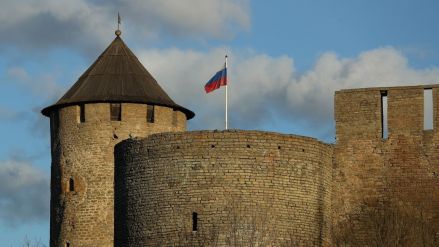
The Kremlin's economic pressure on the region's economies has a military effect. Washington sees this better than Berlin or Paris.
see more
The organizers are aware, however, that a real avalanche of testimonies is yet to be expected. - So far, refugees who set off in the first days of the war have reached Poland. When there are people within our borders who have directly experienced the shelling or entry of Russian troops, there will be incomparably more information, stresses Jerzy Rohoziński.
In this work, the help of volunteers will be indispensable. More than seventy of them have already signed up, but the Center needs more. - We cannot wait with collecting reports of victims and witnesses. As historians, we feel obliged to create a repository with the stories of people who have experienced Russian aggression, so that these crimes can be investigated by historians and lawyers, and in the future – judged on the international arena – said the professor Magdalena Gawin, director of the Pilecki Institute, in a statement for Polish Press Agency.
If it is to be genuine material for historians, lawyers, and in the future - prosecutors - it must meet the standards of impartiality and precision.
- We hope that together we will be able to collect all the evidence of the Russian aggressor’s crimes - says Rohozinski, but immediately adds that the volunteers, apart from the standard "voluntary" training, insurance and signing a contract, will have to undergo a special training. Giving them or imposing the competences of investigating judges is out of the question - but it is about the ability to confront individual reports, clarify ambiguities, use what the organizer of the Documentation Center describes as the "snowball effect": acquiring an increasingly detailed image of events by accumulating hundreds of certificates - even imprecise, even partial.
Accounts from the Telegram
And to confront them not only mutually but also with all publicly accessible information regarding military action. Jerzy Rohoziński points out that the Center collects media data, recordings, photos appearing not only in the media and on the agency's servers, but also on many internet platforms, including the famous Telegram messenger or the independent Belarusian Nexta agency.
These sources are all the more important as the goals set by the Center include not only documenting the Russian invasion of Ukraine, but also testimonies of the Belarusian opposition repressed by the regime of Alexander Lukashenka, reports of the Crimean Tatars as well as information and recordings documenting the destruction of military and civilian infrastructure, historic buildings, including those from the "UNESCO list".
The most difficult task for the Center – being however indispensable - will be to create a register of children and minors who lost their lives as a result of the Russian invasion of Ukraine.
This shape of tasks explains why the Pilecki Institute became the main organizer of the Rafał Lemkin War Crimes Documentation Center. For several years, the employees of the Center for Research on Totalitarianism have been dealing with materials and protocols of the Main Commission for the Investigation of German Crimes in Poland established in 1945 (after 1949, for political reasons, it was renamed the Main Commission for the Investigation of Nazi Crimes). Thousands of post-war testimonies of Polish citizens, collected in the digital database "Terror Records", create the glacier-sized "snowball" mentioned by Rohoziński - allowing 75 years after the war to identify hitherto unknown crimes, victims and perpetrators.
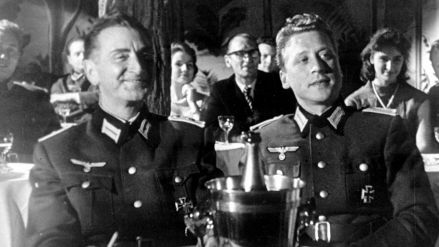
Hundreds of millions of bottles streamed into Germany. Many wineries made fortunes.
see more
Another invaluable experience offered by the Institute is the YouTube channel "Witnesses of the Epoch", built from scratch by its Film Department. Thousands of views around the world show how much we still need to listen to the voice of the victims of totalitarian crimes. The patron, Rafał Lemkin - a Polish lawyer of Jewish origin, creator of the term "genocide", researcher of Nazi and Stalinist terror - obliges.
Who else can the reports of the Center for the Documentation of Russian War Crimes be of use in the future? At demonstrations in Polish, British and Lithuanian cities, the slogan "Nuremberg trial for Putin" is often chanted. Can it become more than just a sign of condemnation and powerlessness?
It took two thousand years since Thucydides for civilization to do more than distinguish between chivalrous and "non-chivalrous" deeds in war. The first declaration of non-application of certain measures in the war (admittedly, at that time it was only about piracy and the transit of forbidden goods) was signed in Paris after Russia had lost the Crimean War, in 1856. Subsequent declarations and conventions (among them the best known ones: the Geneva of 1864, later by 10 years in Brussels and two years in Hague - from 1899 and 1907) expanded the list of forbidden acts. However, they did not explicitly forbid them, but only obliged the signatory states to introduce these bans into their own legislation.
The very concept of a "war crime" appeared only in the Treaty of Versailles, signed at the end of World War I. In the same year, the first catalogue of war crimes was created, expanded in 1925, among others, by prohibiting the use of chemical and biological weapons. With our knowledge of what happened a dozen or so years after 1925, such expressions may seem like a cynical joke. In fact, however, similar decisions and international agreements, first of all, raised awareness of what was unacceptable in war.
Compromises and convulsions
Secondly – in majority they ended up in the legislation of individual countries, which made the situation of war criminals more difficult (by committing crimes, they violate not only the abstract "international convention", but the law of their own country). Thirdly - in those cases (not as numerous as we would like them to be), when the perpetrating party lost the war, its leaders could be brought before a tribunal, tried and convicted: not by an act of revenge or a political decision, but by a sentence issued respecting all juridical rules.
These were the origins of the International Military Tribunal at Nuremberg. Of course, its appointment, mode of operation, scope of activity and composition were the subject of a political game between the already quarreling powers. At first, Great Britain and France were reluctant to him, the position of the US and the USSR prevailed, whose position, however, meant that no crimes committed by Moscow in the occupied territories in 1939-1941 or despicable acts against citizens of the occupied countries were brought to trial.
For Poles, the most meaningful example of "justice of the victors" is the fact that the perpetrators of the Katyn massacre were not tried at Nuremberg. At the same time, it is worth remembering that - despite the Soviet propaganda attributing the murder of 16,000 Polish prisoners of war to the Germans - the Katyn massacre was not on the list of charges against the leaders of the Third Reich. That was all the Tribunal could do.
Another institution of international jurisdiction has become the International Criminal Court - the first permanent international court in history, established to judge individuals accused of genocide, crimes against humanity and war crimes. For many years, the "Hague Tribunal" had been associated primarily with the war in former Yugoslavia and its perpetrators. Since then, however, proceedings have been conducted before it in the case of crimes committed, inter alia, in the Democratic Republic of the Congo, Uganda and Sudan - and despite the shaky international order, it has maintained its position.
Of course, alike all such institutions, the ICC is the result of a compromise - and both its position and finances depend on the international situation. In order to reduce the amount of contentious issues, the crimes of terrorism were removed from its jurisdiction - China and Russia having refused to sign the Rome Statute, which created the Tribunal. However, it is an important institution - and on March 2, its Prosecutor General Karim Khan announced that the ICC started an investigation against war crimes that may have been committed in Ukraine. Documentation of hostilities and crimes is also kept by the Ukrainian General Prosecutor's Office.
